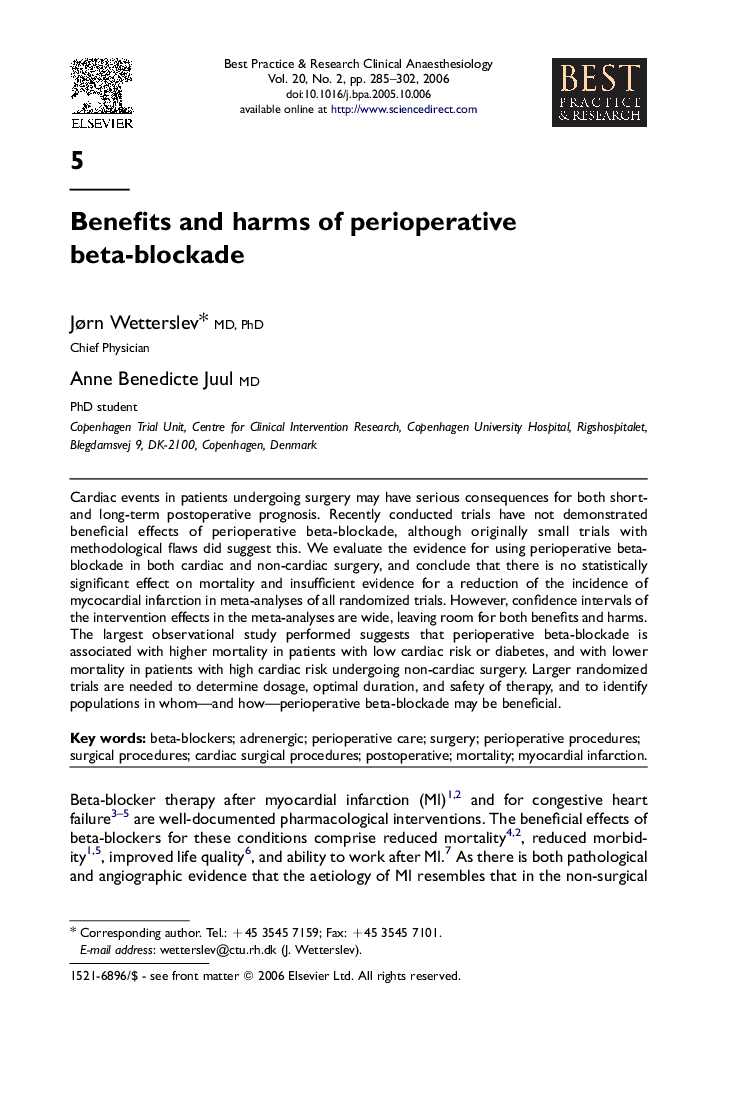| Article ID | Journal | Published Year | Pages | File Type |
|---|---|---|---|---|
| 2748955 | Best Practice & Research Clinical Anaesthesiology | 2006 | 18 Pages |
Cardiac events in patients undergoing surgery may have serious consequences for both short- and long-term postoperative prognosis. Recently conducted trials have not demonstrated beneficial effects of perioperative beta-blockade, although originally small trials with methodological flaws did suggest this. We evaluate the evidence for using perioperative beta-blockade in both cardiac and non-cardiac surgery, and conclude that there is no statistically significant effect on mortality and insufficient evidence for a reduction of the incidence of mycocardial infarction in meta-analyses of all randomized trials. However, confidence intervals of the intervention effects in the meta-analyses are wide, leaving room for both benefits and harms. The largest observational study performed suggests that perioperative beta-blockade is associated with higher mortality in patients with low cardiac risk or diabetes, and with lower mortality in patients with high cardiac risk undergoing non-cardiac surgery. Larger randomized trials are needed to determine dosage, optimal duration, and safety of therapy, and to identify populations in whom—and how—perioperative beta-blockade may be beneficial.
